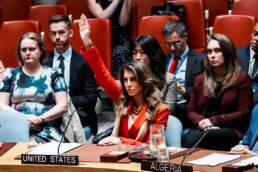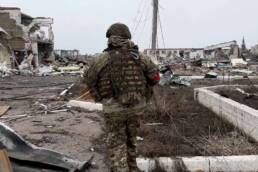المصادر:
(*) نُشرت هذه الدراسة في مجلة المستقبل العربي العدد 432 في شباط/ فبراير 2015.
(**) جاد ملكي: أستاذ مساعد، الجامعة الأميركية في بيروت، قسم الدراسات الإعلامية.
البريد الإلكتروني: jmelki2000@gmail.com
(***) سارة ملاط: الجامعة الأميركية في بيروت، قسم الدراسات الإعلامية.
[1] R. Kelly Garrett, «Protest in an Information Society: A Review of Literature on Social Movements and New ICTs,» Information, Communication and Society, vol. 9, no. 2 (2006), pp. 202-224.
[2] Mary C. Joyce, ed., Digital Activism Decoded: The New Mechanics of Change (New York: International Debate Education Association, 2010).
[3] Roberta Garner and Mayer Zald, «The Political Economy of Social Movement Sectors,» in: Mayer Zald and John McCarthy, eds., Social Movements in an Organizational Society (New Brunswick, NJ: Transaction, 1987), pp. 293-317.
[4] Garrett, «Protest in an Information Society: A Review of Literature on Social Movements and New ICTs,» pp. 202-224.
[5] Doug McAdam, John McCarthy and Mayer Zald, Comparative Perspectives on Social Movements: Political Opportunities, Mobilizing Structures, and Cultural Framings (New York: Cambridge University Press, 1996).
[6] Garrett, Ibid., p. 203.
[7] «Lebanon: Freedom in the World Report,» Freedom House (2013), <http://www.freedomhouse.org/country/lebanon>.
[8] Halim Barakat, The Arab World: Society, Culture, and State (Berkeley CA: University of California Press, 1993).
[9] Hilal Khashan, «Middle Eastern Upheavals: The View from Syria and Lebanon,» Middle East Quarterly, vol. 18, no. 3 (2011), pp. 25-30, and Samir Makdisi, Fadia Kiwan and Marcus Marktanner, «Lebanon: The Constrained Democracy and its National Impact,» in: Ibrahim Elbadawi and Samir Makdisi, eds., Democracy in the Arab World: Explaining the Deficit (New York; London: Routledge, 2010), pp. 115-141.
[10] «First Launched in 1995: The Corruption Perceptions Index Has Been Widely Credited with Putting the Issue of Corruption on the International Policy Agenda,» Transparency International (2011), <http://www.transparency.org/policy_research/surveys_indices/cpi/2011/results>.
[11] Olivia Alabaster, «Lebanon in Dire Need of a New Media Law,» The Daily Star, 12/8/2011.
[12] Abeer Al-Najjar, «Contesting Patriotism and Global Journalism Ethics in Arab Journalism,» Journalism Studies, vol. 12, no. 6 (2011), pp. 747-756.
[13] Simon Haddad, «Cultural Diversity and Sectarian Attitudes in Postwar Lebanon,» Journal of Ethnic and Migration Studies, vol. 28, no. 2 (2002), pp. 291-306, and Sami A. Ofeish, «Lebanon’s Second Republic: Secular Talk, Sectarian Application,» Arab Studies Quarterly, vol. 21, no. 1 (1999), pp. 97-116.
[14] Lamia R. Shehadeh, «The Legal Status of Married Women in Lebanon,» International Journal of Middle Eastern Studies, vol. 30, no. 4 (1998), pp. 501-519.
[15] Michael Dawahare, Civil Society and Lebanon: Toward a Hermeneutic Theory of the Public Sphere in Comparative Studies (Parkland, FL: Brown Walker Press, 2000).
[16] Population Characteristics (Beirut: Central Administration of Statistics of the Republic of Lebanon, 2007).
[17] «Assessment of Capacity Building Needs of NGOs in Lebanon,» UNDP (2009), <http://www.undp.org.lb/communication/publications/index.cfm>.
[18] Shehadeh, «The Legal Status of Married Women in Lebanon,» pp. 501-519.
[19] D. N. Farhood, «Family, Culture, and Decisions: A Look into the Experiences of University Students in Lebanon,» (Unpublished Master’s Thesis, American University of Beirut, Lebanon, 2009).
[20] IWMF, Global Report of the Status of Women in the News Media (Washington, DC: Carolyn M. Byerly, 2011).
[21] «Freedom in the World 2011,» Freedom House (2011), <http://www.freedomhouse.org/template.cfm?page=363&year=2011>.
[22] المصدر نفسه.
[23] Sari Hanafi and A. Age Tiltes, «The Employability of Palestinian Professionals in Lebanon: Constraints and Transgression,» Knowledge, Work and Society, vol. 5, no. 1 (2008), pp. 1-15.
[24] «Lebanon: Migrant Domestic Workers Dying Every Week,» Human Rights Watch (2008), <http://www.hrw.org/en/news/2008/08/24/lebanon-migrant-domestic-workers-dying-every-week>.
[25] Ellen Hardy, «An Arab Transsexual Speaks,» Time Out Beirut, vol. 25 (October 2010), p. 83.
[26] B. Anderson, «Campaign Mounts Against Lazy Lebanese Internet,» The Daily Star, 2/6/2011.
[27] Mohammed Bin Rashid Al-Maktoum Foundation and United Nations Development Programme [UNDP], Arab Knowledge Report 2009: Towards Productive Intercommunication for Knowledge (Dubai: UNDP, 2009).
[28] Jad Melki, «Media Habits of MENA Youth: A Three-Country Survey,» Issam Fares Institute Youth in the Arab World Working Paper Series, vol. 2, no. 1 (2010), p. 3-50.
[29] Fieke Jansen, «Digital Activism in the Middle East: Mapping Issue Networks in Egypt, Iran, Syria and Tunisia,» Knowledge Management for Development Journal, vol. 6, no. 1 (2010), pp. 37-52, and Kate Raynes-Goldie and Luke Walker, «Our Space: Online Civic Engagement Tools for Youth,» Civic Life Online: Learning How Digital Media Can Engage Youth, MacArthur Foundation Series on Digital Media and Learning (Cambridge, MA: MIT Press, 2008).
[30] «Percentage of Individuals Using the Internet,» International Telecommunication Union (ITU) (2012), <http://www.itu.int/en/itu-d/statistics/pages/stat/default.aspx>.
[31] «Arab States Profile 2009,» International Telecommunication Union (2010).
[32] «Fixed (Wired)-Broadband Subscriptions,» International Telecommunication Union (ITU) (2013), <http://bit.ly/1cblxxy>.
[33] «Household Download Index: Lebanon,» Net Index (2011), <http://www.netindex.com/download/allcountries/>.
[34] E. Sakr, «MTC Launches 3G Service One Week after Rival Provider Alfa,» The Daily Star, 3/10/2011.
[35] R. Mourtada and F. Salem, «Facebook Usage: Factors and Analysis,» Dubai School of Government Arab Social Media Report, vol. 1, no. 1 (2011), pp. 1-19.
[36] «Lebanon: Freedom in the World Report».
[37] «Freedom in the World Report 2011,» Freedom House (2011), <http://www.freedomhouse.org/template.cfm?page=363&year=2011>.
[38] Jeffrey Ghannam, «Social Media in the Arab World: Leading to the Uprisings of 2011,» Center for International Media Assistance (2011).
[39] Catherine Marshall and Gretchen B. Rossman, Designing Qualitative Research, 3rd ed. (Thousand Oaks, CA: Sage Publication, 1999).
[40] Andrew J. Flanagin and Miriam J. Metzger, «Digital Media and Youth: Unparalleled Opportunity and Unprecedented Responsibility,» in: Miriam J. Metzger and Andrew J. Flanagin, eds., Digital Media, Youth, and Credibility (Cambridge, MA: MIT Press, 2008), pp. 5-28; Ganaele Langlois [et al.], «Networked Publics: The Double Articulation of Code and Politics on Facebook,» Canadian Journal of Communication, vol. 34, no. 3 (2009), pp. 415-434, and Linda S. L. Lai and Efraim Turban, «Groups Formation and Operations in the Web 2.0 Environment and Social Networks,» Group Decision and Negotiation, vol. 17, no. 5 (2008), pp. 387-402.
[41] Melki, «Media Habits of MENA Youth: A Three-Country Survey,» pp. 3-50.
[42] «Lebanon: Law Reform Targets «Honor» Crimes,» Human Rights Watch (2011), <http://www.hrw.org/news/2011/08/11/lebanon-law-reform-targets-honor-crimes>.
[43] سهى شمص، Çحماية المرأة على جدول البرلمان،È الأخبار، 28/3/2014، وBrooke Anderson, «Lebanese Demonstrate for Legal Protection against Domestic Violence,» The Daily Star, 20/2/2012.
[44] بسام القنطار، Çقانون الرفق بالحيوان إلى البرلمان… در،È الأخبار، 25/12/2011.
[45] Sebastien Malo, «Where Online Activism Meets Offline Action,» The Daily Star, 23/8/2010.
[46] Saseen Kawzally, ««Mukhayamat/Camps»: Palestinian Life in Lebanon,» Menasset (10 February 2009), <http://www.menassat.com/?q=en/news-articles/5954-lebanese-newspaper-sets-its-sites-coverage-palestinian-life-lebanon>.
[47] Sam Dagher, «Arab Media Clash Over Syria,» Wall Street Journal, 24/3/2012, <http://wsj.com/article/SB10001424052970203961204577269081450598296.html>.
[48] المصدر نفسه.
[49] Islah Jad, «The NGO-isation of Arab Women’s Movements,» IDS, vol. 35, no. 4 (2004), pp. 34-42, and Lara Khattab, «Civil Society in a Sectarian Context: The Women’s Movement in Post-war Lebanon,» (Unpublished Master’s Thesis, Lebanese American University, 2010).
[50] «The Arab Awakening,» Al Jazeera (22 February 2011), <http://www.aljazeera.com/indepth/spotlight/2011/02/2011222121213770475.html>.
[51] Simona Sikimic, «Laique Demonstrators Call for a Secular State,» The Daily Star, 16/5/2011.
[52] Samantha Wehbi and Yahya El-Lahib, «Organising for Voting Rights of People with Disabilities in Lebanon: Reflections for Activists,» Equal Opportunities International, vol. 26, no. 5 (2007), 449-464.
[53] Kawzally, ««Mukhayamat/Camps»: Palestinian Life in Lebanon».
[54] «Media Laws Reform in Lebanon,» Maharat Foundation (2010), <http://maharatfoundation.org/?page_id=5>.
[55] Jad Melki [et al.], «Mapping Digital Media: Lebanon,» Open Society Foundations Media Program (2012), <http://www.soros.org/initiatives/media>.
[56] Yana Breindl, «Internet-based Protest in European Policy-making: The Case of Digital Activism,» International Journal of E-Politics, vol. 1, no. 1 (2010), pp. 51-72, and Richard Kahn and Douglas Kellner, «New Media and Internet Activism: From the «Battle of Seattle» to Blogging,» New Media and Society, vol. 6, no. 1 (2004), pp. 87-95.
[57] Mary C. Joyce, ed., Digital Activism Decoded: The New Mechanics of Change (New York: International Debate Education Association, 2010).
[58] Rula Diab, «Political and Socio-cultural Factors in Foreign Language Education: The Case of Lebanon,» Texas Papers in Foreign Language Education, vol. 5, no. 1 (2000), pp. 177-187.
[59] E. Morozov, «Foreign Policy: Brave New World of Slacktivism,» National Public Radio (19 May 2009), <http://www.npr.org/templates/story/story.php?storyId=104302141>.
[60] Garrett, «Protest in an Information Society: A Review of Literature on Social Movements and New ICTs,» pp. 202-224.
[61] Bruce Bimber, «Information and Political Engagement in America: The Search for Effects of Information Technology at the Individual Level,» Political Research Quarterly, vol. 54, no. 1 (2001), pp. 53-67.
[62] W. Lance Bennett, «Communicating Global Activism: Strengths and Vulnerabilities of Networked Politics,» Information, Communication and Society, vol. 6, no. 2 (2003), pp. 143-168.
[63] Dennis McCafferty, «Activism vs. Slacktivism,» Communications of the ACM, vol. 54, no. 12 (2011), pp. 17-19.
[64] Melani Cammett and Sukriti Issar, «Bricks and Mortar Clientelism: Sectarianism and the Logics of Welfare Allocation in Lebanon,» World Politics, vol. 62, no. 3 (2010), pp. 381-421.
[65] Samantha Wehbi and Yahya El-Lahib, «Organising for Voting Rights of People with Disabilities in Lebanon: Reflections for Activists,» Equal Opportunities International, vol. 26, no. 5 (2007), pp. 449-464.
بدعمكم نستمر
إدعم مركز دراسات الوحدة العربية
ينتظر المركز من أصدقائه وقرائه ومحبِّيه في هذه المرحلة الوقوف إلى جانبه من خلال طلب منشوراته وتسديد ثمنها بالعملة الصعبة نقداً، أو حتى تقديم بعض التبرعات النقدية لتعزيز قدرته على الصمود والاستمرار في مسيرته العلمية والبحثية المستقلة والموضوعية والملتزمة بقضايا الأرض والإنسان في مختلف أرجاء الوطن العربي.



